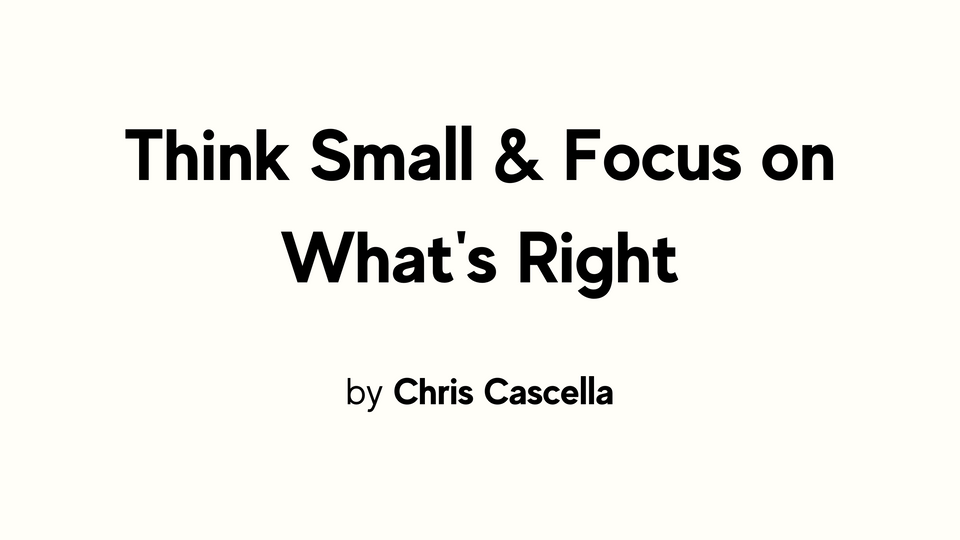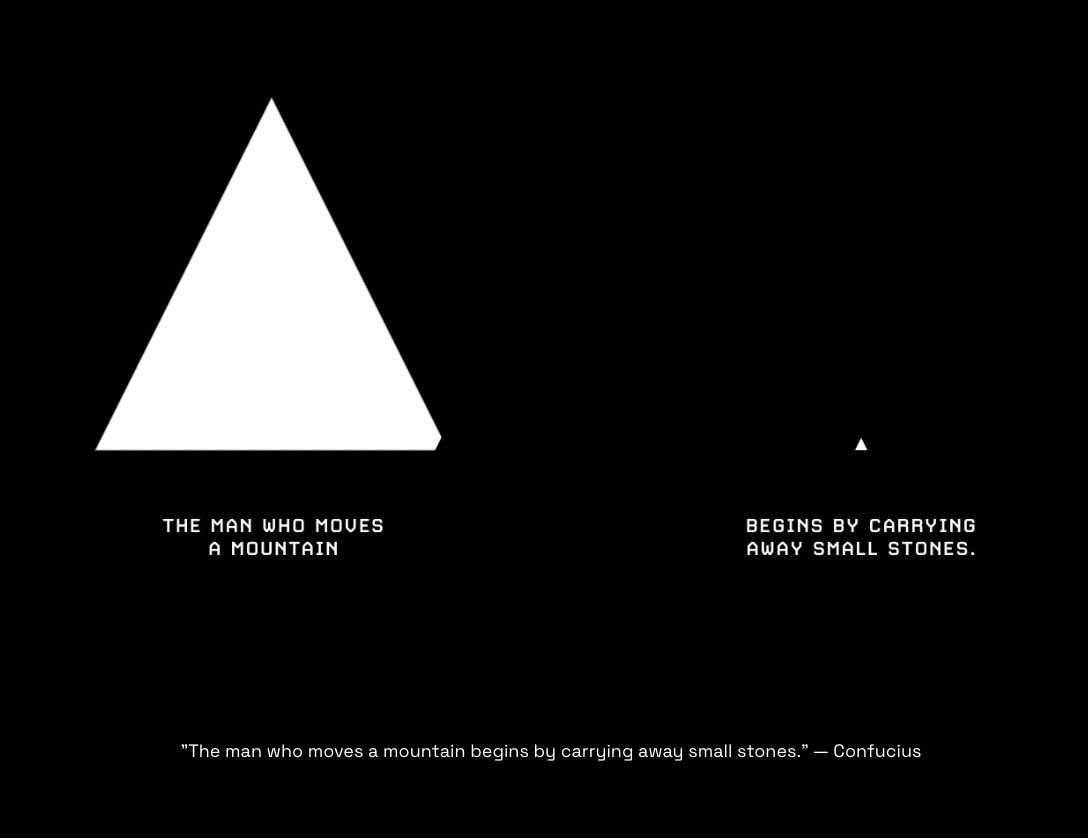FTT: Think Small & Focus on What's Right

Happy Free Thoughts Thursday, people.
If you're feeling overwhelmed, here's a nice reminder from Jack Butcher of Visualize Value:

Life moves quickly and sometimes our problems and to-dos all seem to morph together which makes it hard to know where to start.
Whether it's your relationship, finances, schoolwork, boss, or even just your messy room... start small.
You don't have to (and probably shouldn't) take care of everything all at once.
Break down whatever you're facing into manageable tasks and knock them out one at a time.
Life's a marathon, not a sprint.
1 Thought From Me:
"The best relationships aren't built on partners mostly telling each other what's wrong. They're built on partners mostly telling each other what's right." — Dr. John and Julie Gottman
That quote is from a book called The Love Prescription.
I listened to the audiobook earlier this month and was blown away.
I'm not in a relationship, but I love learning about psychology and human behavior and some of the most fascinating case studies to learn from are of successful couples.
Plus, pretty much everything we learn from intimate relationships can also be applied to our relationships with friends and family.
In the book, the Gottmans talk about something many people are familiar with, which is the statistic that a couple needs a 5:1 ratio of positivity to negativity during a conflict to be successful over the long-term.
The positivity can come in the form of a smile, a joke, a hug, a compliment, etc.
What most people don't know is that overall, including moments outside of conflict, couples need that ratio to be 20:1 if they want to be successful over the long-term.
When I first heard this, I immediately thought to myself: How can a couple possibly have 20 positive interactions for every one negative when you factor in things like work, kids, travel, in-laws, finances, etc.?
But then I remembered something I've talked about consistently in this newsletter and in my videos: we humans have a remarkable bias towards negativity.
That bias used to keep us alive but nowadays it causes all sorts of problems.
Think about it in the context of relationships.
Our partners, friends and family members mostly do things that we like, or, at the very least, we don't mind.
If this wasn't the case then we probably wouldn't spend much time with them and we might even cut them out of our lives altogether.
This means that it's relatively rare that the people close to us do things that we don't like or that bother us.
Yet, it doesn't always seem that way because we tend to only notice the negatives—the things that bother us.
If your initial urge is to dismiss this idea then I encourage you to take a step back and think about it.
Whether you're thinking about your partner, friends or family, these are the people you spend more time with than anyone else. Of course they're going to do things that bother you. You're not going to agree on everything. But they also do things that please you. And there's a lot of things you are going to agree on.
The question is: what do you focus on?
The positives or the negatives?
We all have expectations for the kind of people we want in our lives.
We want people who are honest, who communicate well, who follow through with promises, etc.
The problem is we don't tell those people when they're meeting or exceeding our expectations; we only tell them when they're falling short.
For some reason we think people can read our minds when things are going well but we have to share our thoughts when things are going poorly.
We convince ourselves that others meeting our expectations is the bare minimum requirement and deserves no endorsement or appreciation from us because in our minds it should be the norm.
But we and those around us are human. We make mistakes. We fall short from time to time.
We can't expect our partner, friends or family to be perfect.
We're not perfect.
The answer to my question—How can a couple [or any relationship] possibly have 20 positive interactions for every one negative when you factor in things like work, kids, travel, in-laws, finances, etc.?—is simple.
Don't mostly tell each other what's wrong.
Mostly tell each other what's right.
There's more than you think.
Live your life to the fullest,
Chris
P.S. If you want to share this newsletter just copy and paste this link:
P.P.S. You might enjoy this video:
Watch my videos on YouTube